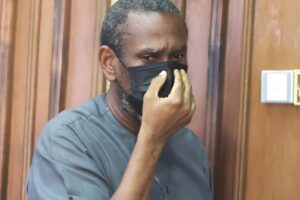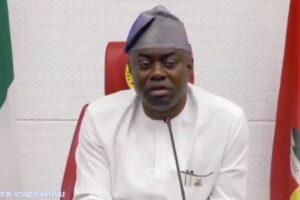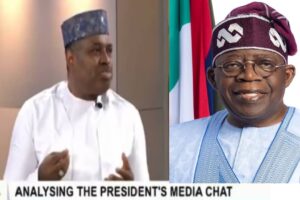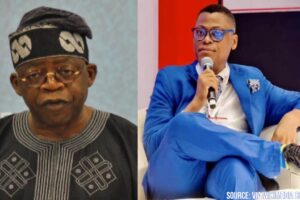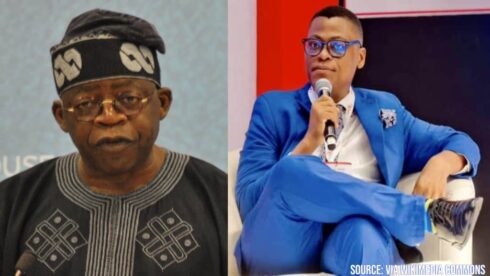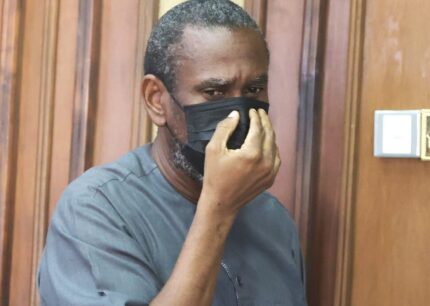Prominent Nigerian journalist Rufai Oseni has delivered a scathing critique of President Bola Ahmed Tinubu’s media approach. Speaking on a live broadcast, Rufai Oseni highlighted the president’s prolonged silence, emphasizing that it took Tinubu 18 months to address Nigerians directly. According to Rufai Oseni, this delay coincided with the rollout of two critical policies that he claims have negatively impacted the nation’s economic and social fabric.
Rufai Oseni’s comments reflect growing public discontent regarding the perceived lack of transparency from the presidency. “It’s deeply concerning that during such a turbulent period, Nigerians were left without direct communication or assurances from their leader,” Rufai Oseni stated. This silence, coupled with the adverse effects of Tinubu’s policies, has raised questions about his governance style and priorities.
Two Policies, One Nation in Crisis: Rufai Oseni’s Key Concerns
The journalist pinpointed two major policies as the bedrock of his criticism: the removal of fuel subsidies and the unification of the foreign exchange rate. Both measures were introduced early in Tinubu’s administration and have since sparked widespread economic hardship. Fuel prices have tripled, affecting transportation and food costs, while the foreign exchange policy has destabilized the naira, leading to inflationary pressures.
Rufai Oseni lamented the lack of mitigating measures accompanying these policies. “These decisions were rushed without any buffer for the average Nigerian,” he argued. Many economic analysts agree, suggesting that while the policies may be sound in principle, their execution has left millions of Nigerians struggling to make ends meet.
The Media Chat That Raised More Questions Than Answers
President Tinubu’s recent media chat was intended to address concerns and reassure Nigerians. However, Rufai Oseni expressed disappointment, describing the session as underwhelming and lacking in substance. He claimed that the president failed to provide concrete solutions or a clear roadmap for addressing the nation’s challenges.
Rufai Oseni’s critique resonated with many Nigerians, who felt the president sidestepped pressing issues during the chat. “After that media chat, I am more scared about Nigeria,” Rufai Oseni admitted, reflecting a sentiment shared by citizens grappling with uncertainty about the country’s future.
Public Sentiment: A Nation Divided Over Tinubu’s Leadership
Rufai Oseni’s remarks have ignited a debate about Tinubu’s leadership and communication style. While some citizens and political analysts defend the president’s policies as necessary for long-term stability, others view them as poorly timed and detrimental to the average Nigerian. The prolonged silence only exacerbated feelings of alienation and distrust.
Many Nigerians have turned to social media to voice their frustrations. Hashtags criticizing the government’s handling of economic policies have trended, with calls for greater accountability and empathy from the presidency.
Experts Weigh In: A Policy Failure or Communication Breakdown?
Economic and political analysts have weighed in on Rufai Oseni’s critique, with some agreeing that Tinubu’s administration has failed in its communication strategy. Experts argue that effective governance requires not just policy implementation but also consistent and transparent engagement with the public.
Dr. Adekunle Ajayi, a public policy expert, noted, “The president’s policies may have merit, but the lack of communication during such pivotal moments eroded trust. Nigerians need a leader who listens and responds promptly.” This sentiment underscores the importance of bridging the gap between government actions and public perception.
The Road Ahead: Can Tinubu Restore Confidence?
As Tinubu’s administration approaches its second year, the pressure to rebuild public trust is mounting. Critics like Rufai Oseni have called for a more inclusive approach to governance, urging the president to prioritize the welfare of Nigerians while fostering open communication.
To move forward, analysts suggest that Tinubu must address the economic fallout of his policies while demonstrating a clear commitment to transparency. Whether he can rise to the challenge remains to be seen, but for many Nigerians, the time for decisive and empathetic leadership is long overdue.
Table of Contents
Discover more from OGM News NG
Subscribe to get the latest posts sent to your email.



